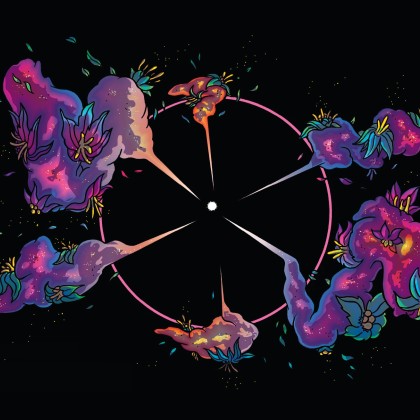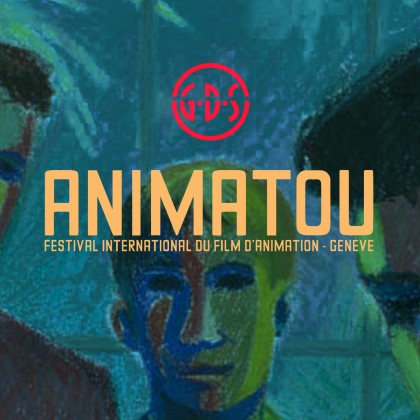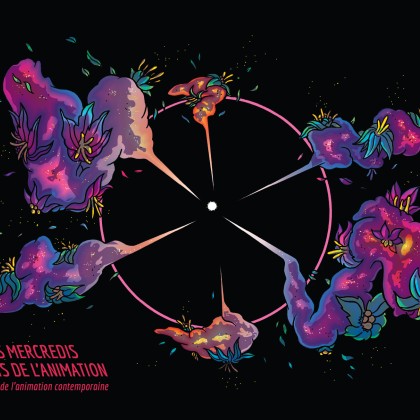CARTE BLANCHE AU FESTIVAL MONSTRA
CONCERT DE PEIXE : AVIÃO | SEXY INDIE POP DE PORTO
TERRA DA GENTE | PROGRAMME MUSICAL DE L’ALENTEJO
TERRA DA GENTE | RENDEZ-VOUS GASTRONOMIQUE AVEC L’ALENTEJO
CARTE BLANCHE AU FESTIVAL CINANIMA
TABLE RONDE «L’ÉNIGME PORTUGAISE»
TERRA DA GENTE | ATELIER DANSE DE L’ALENTEJO
FABRICATION DE VIOLA CAMPANIÇA
LA FACE CACHÉE | THE OTHER SIDE
MINI MASTERCLASS REGINA PESSOA
TERRA DA GENTE | ATELIER DANSE DE L’ALENTEJO
AH LE PORTUGAL!
Pour répondre à l’invitation du Festival Animatou, qui mettait à l’honneur cette année le Portugal, nous avons voulu offrir une vision plus vaste de la culture de ce pays et de sa cinématographie. Une vision qui mette en lumière son identité, ses traditions et son inscription dans le monde contemporain, à travers deux lignes directrices: d’une part le cinéma d’animation portugais le plus important de ses vingt dernières années, d’autre part une approche plus ethnographique d’un territoire – l’Alentejo, région au sud au Portugal – à travers sa musique, ses chants, ses danses et sa gastronomie.
Ce double programme sera présenté au Musée d’ethnographie de Genève, avec son volet cinéma et son volet davantage ethnographique baptisé «Terra da gente».
Si le Portugal présente une culture uniforme, vu de l’extérieur, il a développé au fil du temps des identités multiples, de par sa géographie, ses relations avec l’extérieur, son histoire politique et sociale. L’Alentejo témoigne de la richesse extraordinaire de ces héritages culturels, dont le «Cante Alentejano», ses chants polyphoniques ont été, il y a peu, inscrits au Patrimoine mondial immatériel de l’humanité par l’UNESCO.
Aussi nous sommes très heureux de l’opportunité qui nous a été donnée d’ouvrir une fenêtre sur le Portugal et la vitalité de sa culture, et tout particulièrement à Genève, dont la communauté d’origine portugaise est ici la plus importante.
Parabéns Animatou!
José António Cunha, curateur du programme portugais
José António Cunha (1978) est professeur et chercheur en cinéma, scénariste et programmateur.
Il collabore depuis 2008 avec l’association Casa da Animação. Au début des années 80, il a connu lui-même l’émigration, en allant vivre avec sa famille au Vénézuela. Il est l’auteur d’une thèse sur la représentation au cinéma de la figure de l’émigré portugais. Il vit à Porto.
In answer to Animatou Festival’s invitation honoring Portugal this year, we wanted to offer a more expansive vision of the country’s culture and cinematography.
A vision that would highlight Portugal’s identity, traditions and place in the contemporary world, through two principle veins: one featuring the most important Portuguese animated films in the past twenty years, and the other a more ethnographic approach of an area, the Alentejo region in the south of Portugal, through its music, songs, dances and gastronomy.
This double programme will be presented at Geneva’s Museum of Ethnography, with its cinema component and more ethnographic component entitled ‘Terra da gente’. If Portugal presents a uniform culture as seen from the outside, over time the country has cultivated its multiple identities as a result of its geography, relations with other countries, and social and political history. The Alentejo region attests to the extraordinary richness of these cultural heritages, such as the ‘Cante Alentejano’, polyphonic songs
recently added to UNESCO’s list of intangible cultural heritage of humanity.
We are very pleased for the opportunity given to shed light on Portugal and the vitality of its culture, especially in Geneva, where the Portuguese community is most significant.
Parabéns Animatou!
José António Cunha, curator of the Portuguese programme
José António Cunha (1978) is a professor and researcher in cinema, a screenwriter and programmer. He has worked with the association Casa da Animação since 2008. In the beginning of the 80s, he experienced emigration first-hand, going to live with his family in Venezuela. He is the author of a dissertation on the filmic representation of the figure of the Portuguese emigrant. He lives in Porto.




